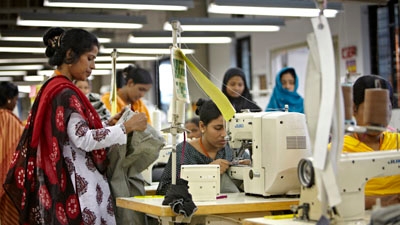March 8, 2012: The World Bank in Bangladesh is helping young women from rural areas overcome the difficulties of migration by giving them an opportunity to successfully adapt to a new life.
For a young single woman, moving by herself from a poor rural village to a distant city with millions of people is daunting enough. But what if she lacked professional experience and skills? What if she has no place to stay, and was totally alone and vulnerable to exploitation, violence, and crime? This is the reality for millions of Bangladeshi women who leave their villages in search of a better life.
However, the decision to migrate and join the formal labor force is not taken lightly. Twenty-two year old Aneeqa recalled the difficulties of her migration. “Food, safety, and a place to live are all things we had to do without when we moved and it made the adjustment very difficult! We knew nothing of city life and had to find houses to share with other girls. It was so difficult.”
To help young women overcome the difficulties of migrating and giving them a chance to successfully adapt to a new life, the World Bank approved a $40 million women’s economic empowerment project in Bangladesh in October 2011.
The “Northern Areas Reduction-of-Poverty Initiative” or NARI (nari means women in Bengali) is the first project of its kind in South Asia. It provides assistance to women who come from the impoverished northern areas of Bangladesh that suffer from seasonal deprivation and famine-like conditions, a phenomenon known as monga. The project aims to link one of the poorest and vulnerable groups in the country to Bangladesh’s rapidly expanding ready-made garment industry.
“Over 80 percent of the three million workers in the thriving garment sector are women. Yeti, they are often vulnerable: young, poor, sometimes illiterate and often single,” said Ellen Goldstein, country director for Bangladesh. “The project will help vulnerable women from the poorest region overcome the difficulties of migration and give them a chance to successfully adapt to a new life.”
The need for greater equity
In spite of substantial barriers for women to be employed, dire circumstances are driving more and more of them from rural Bangladesh to urban areas in search of greater opportunities ― particularly in the garment industry. The garment industry accounted for 80 percent of exports in 2009 and currently employs more than 3 million workers, mostly women. This industry has contributed significantly to women’s empowerment in Bangladesh.

